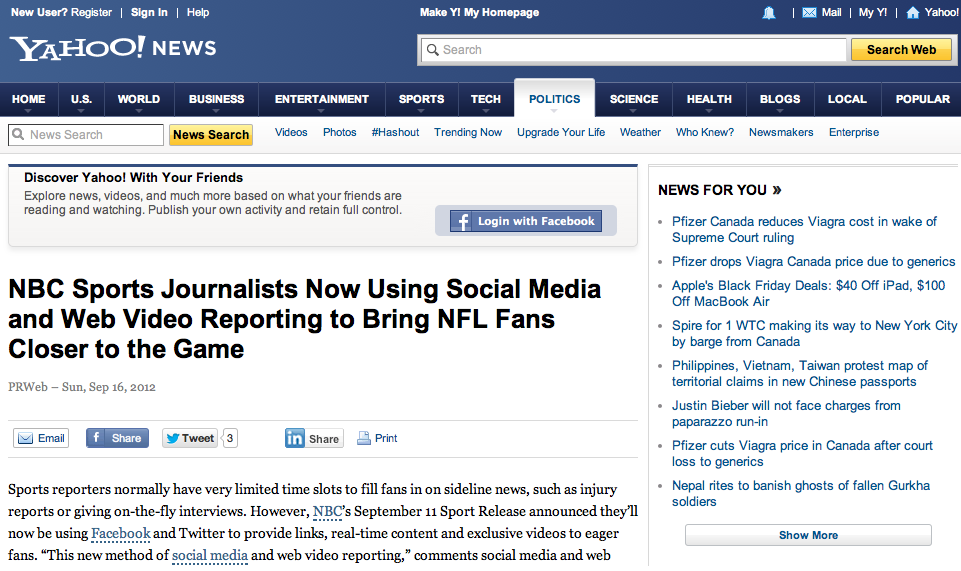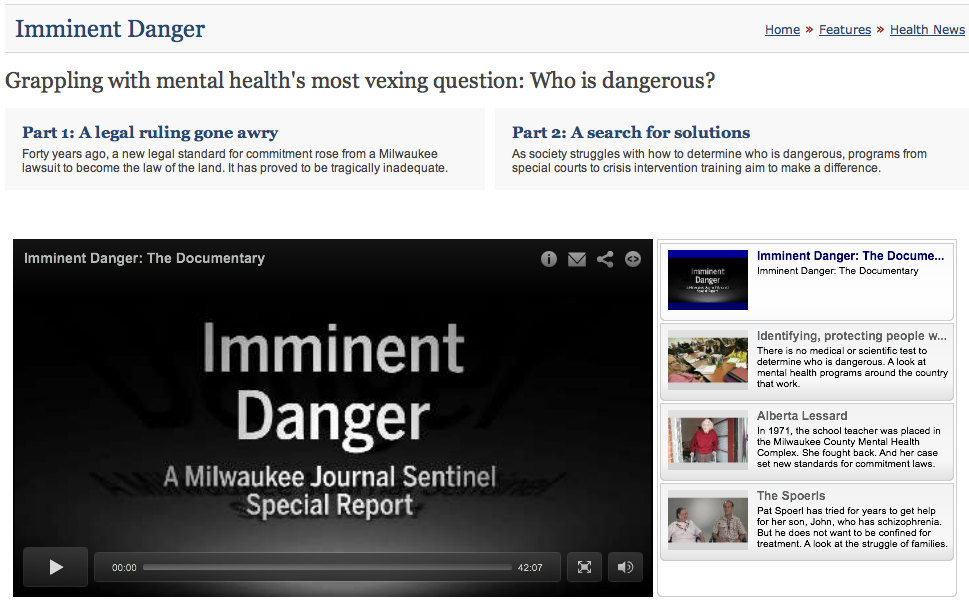The students will hopefully incorporate what our guest speakers have shared into a significant class assignment drawing near. According to the course syllabus, "each student will write and submit a six-page, double-spaced analysis (approximately 1,500 words) that considers how journalists covering high school, college and professional sports use social media, and what might journalists do to improve their use of social media to cover all such sports."
They might also draw upon "Sports Journalists' Use of Social Media and Its Effects on Professionalism," an article in the Journal of Sports Media (fall 2011, Vol. 6, No. 2). The research conducted by Sada Reed, a graduate student in the University of Minnesota's School of Journalism and Mass Communication, begins with this abstract:
"The rise of social media gives sportswriters new avenues for gathering information. This usage raises ethical issues that challenge an already technologically morphing industry. In this pilot study, Minnesota-based sports journalists were interviewed about their use of social media, the effects Facebook and Twitter have on their news gathering practices, the ethics of pulling direct quotes from social mediums, and how these mediums have blurred traditional lines between sports writers’ professional and personal relationships."
I also urge the students to read about the role of Twitter in covering sports scandals, how sports journalists use it to develop and promote their stories and whether it can detect bias among them. Meanwhile, Ronnie Ramos and the National Sports Journalism Center offer "Social Media Still Challenges Journalists, Understanding on the Rise" and Four Ways Social Media has Deteriorated Traditional Journalism." And from Yahoo News there's "NBC Sports Journalists Now Using Social Media and Web Video Reporting to Bring NFL Fans Closer to the Game."
Here's hoping that Walker, Durham, Ash and I have given the class enough to get started on their assignment.


 RSS Feed
RSS Feed
